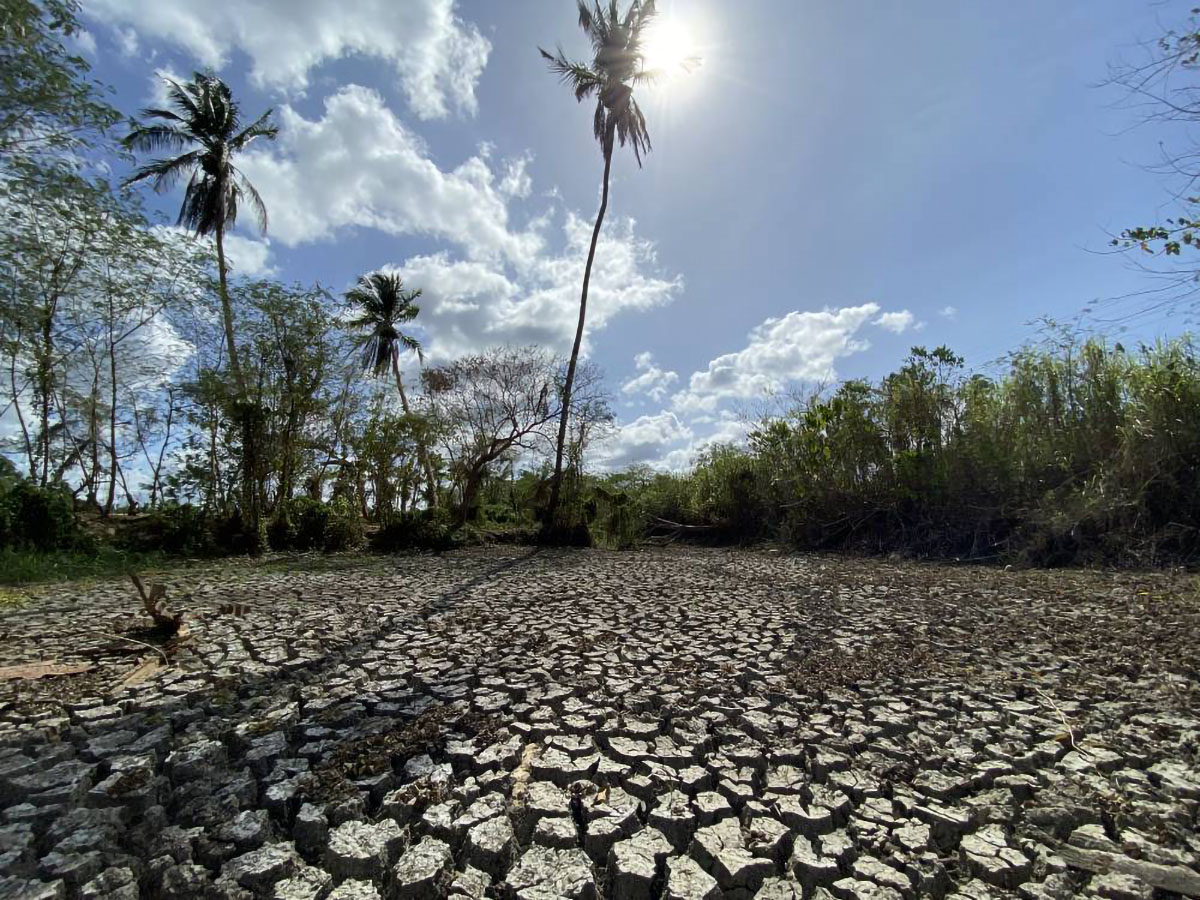
WHERE’S THE FISH? This fishpond in the town of Carmen has been reduced to wasteland as the long dry spell and drought hit Bohol. The province has been placed under a state of calamity due to the impact of El Niño. —LEO UDTOHAN
TAGBILARAN CITY—Bohol has been placed under a state of calamity after damage to agriculture and fisheries caused by the prolonged dry spell and drought brought about by the El Niño weather phenomenon reached at least P420 million.
The declaration made by the provincial board was in response to the recommendation of the Provincial Disaster Risk Reduction and Management Council (PDRRMC) on May 21 to allow the provincial government to tap the calamity funds to help the farmers affected by El Niño.
Acting provincial agriculturist Larry Pamugas said damage to agriculture and fisheries already reached P420,842,864, affecting at least 100,000 farmers.
Of this amount, damage to crops like rice, corn and cassava was pegged at P419,653,670.52 in 36 of 48 towns. The drought destroyed more than 11,000 hectares of rice farms and more than 90 ha of corn fields in Bohol.
Damage to fisheries and livestock was estimated at P756,900 and P433,294 respectively, according to the report from the Office of the Provincial Agriculturist.
With the declaration of a state of calamity, Gov. Aris Aumentado said the province could tap 30 percent of the province’s quick response funds to help the affected farmers.
Agriculture is the main source of livelihood in Bohol, which is acknowledged as the “rice bowl” of the Central Visayas region.
Of at least 47,000 ha of rice fields in Bohol, 24,000 ha are irrigated through dams, small water catchments and diversionary canals. The remaining 23,000 ha rely on rain.
Water supply
The province’s water reservoirs—Malinao Dam in Pilar town, Bayongan Dam in San Miguel town, Capayas Dam in Ubay town and Zamora Dam in Talibon town—have almost dried up due to lack of rain.
The National Irrigation Administration reported that water levels in dams were way below the target for serviceable areas. Malinao Dam, for instance, could only supply 350 ha out of the target 4,150 ha.
Pamugas encouraged farmers to plant high-value crops, like vegetables that require less water, amid the shortage of rainfall in the province.
“In terms of our interventions, we are prepared to give free seeds, fertilizers and fingerlings for the affected fishpond operators, like tilapia growers,” Pamugas said.
The province has been experiencing drought since March, with rainfall still below normal this month.
A state of calamity due to the drought was also declared in Bohol in 2016 and 2019.